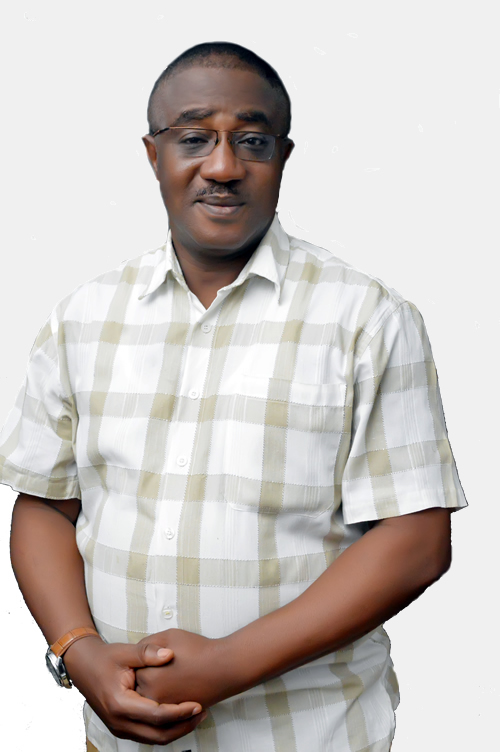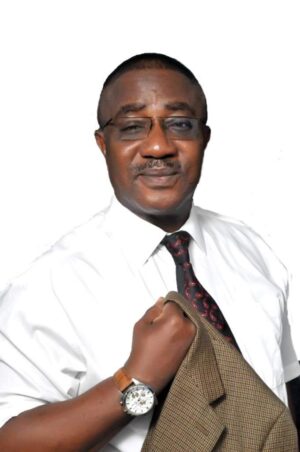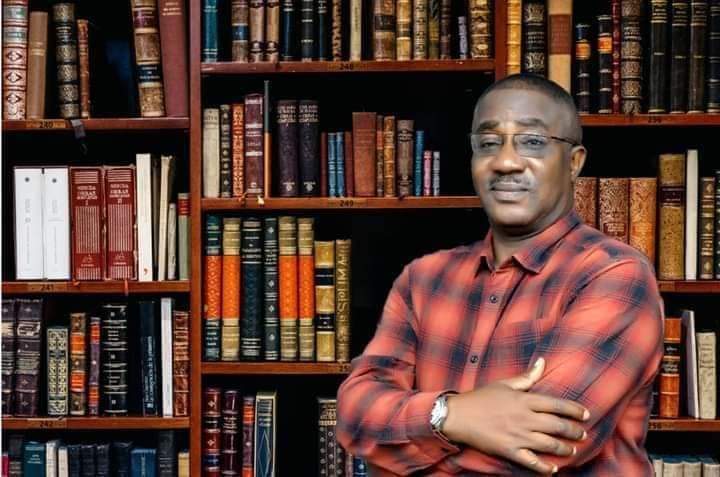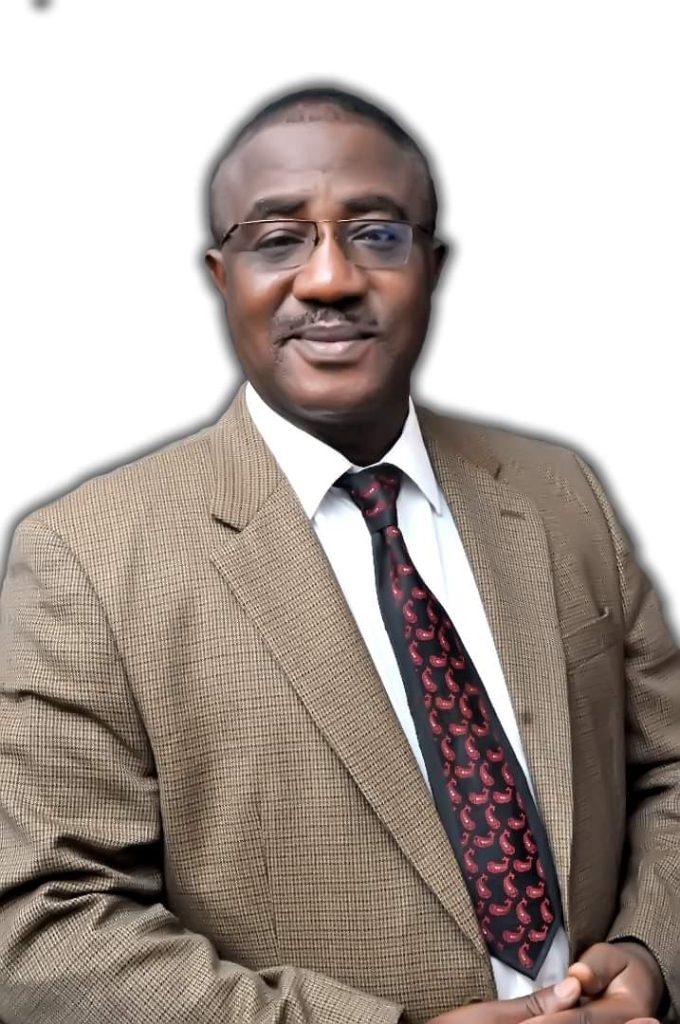Dr. Bola Adewara is the publisher of Elifeonline.net and Elife Magazine. He has been in the publishing industry since 2005. He started with online publication when many newspapers in Nigeria were yet to embrace the online culture.
He is the Principal Consultant of Livingprojects Ltd (https://www.livingprojectsltd.com), a Nigerian ICT and pro-gospel media outfit.

* Dr. Bola Adewara
A widely traveled journalist, biographer, infopreneur, and webmaster, he also lectures at EPIC Theological Seminary and College, Lagos, Nigeria.Adewara is the convener of The Lagos Christian Entrepreneur Meetup Group, consisting of about 4000 members, and the Lagos Web Design Meetup Group consisting of about 2000 members. On Facebook, he founded several pages and groups that are ministering to souls around the world. In this interview with Church Times Nigeria, Adewara shares his publishing experience
You have been in the publishing industry since 2005. What was the transition like from an employee to an employer of labour?
It has been challenging, and I wonder when it shall be easy because our education is not geared towards employment creation. There is no organised mentoring institution where immediately you are out of school, you are trained on how to earn money, save, invest and become an employer of labour.
I have been flirting with the media as far back as 1984 in Kaduna, with the New Nigerian Newspaper, Today Newspaper, and Triumph. But I became a full-time journalist, earning salaries from different media organisations in 1992. The frustration was much. The pay was poor. Journalists were then seen as paupers. There was no job satisfaction. What drove our journalism was pure passion.
One Sunday morning, I watched a Church programme on TV, where the preacher spoke on Define your future. That message woke me up from slumber. The message showed me the difference between earning salaries and making profit.
I saw myself as a fool, working all my life for people, earning miserable salaries while they were making profits from my sweat. Before the end of that sermon, I made up my mind that employment was over. That was how a new me was born.
The following morning, a Monday, I went straight to the office to pack my things. A friend who saw me packing asked where was I going. I told him I didn’t know where I was going, but I knew I was going somewhere. I told him that day marked the end of working as a salary earner.
He started laughing at me. I added that today, we are all writing on people; he should give me five years, people would be writing on me. And that if he saw my leg in the office again, he should cut it. I refused to resign or tell my editor that I was leaving. I was so bitter I had to burn the bridge so that I would not walk that way again.
That was how I left the office and salary job. People were calling me to come and resign properly, I told them to leave me alone. Gradually, God gave me the idea of an E-life magazine. The story of E-life is another long one. There was no supportive institution to help you with knowledge and transition from being a salary earner to a salary payer. I started searching for books to read. I began meeting people to teach me how to stand on my feet. Not earning salaries any longer came with terrible hardship. I had been used to such hardship anyway because I got married as an unemployed journalist.
At a point, I was tempted to return to my former employer. But because I had a clear vision of my purpose and was ready to face the challenges. I knew the pain would only be for a few years. I prepared my mind for the challenges. The motivational messages I was exposed to kept me going. So the transition though challenging eventually paid off. The wilderness experience of pains, temptations, mockery in the Church, quarrel, suffering and faithfulness of Christ is a story I will write about someday.
You veered into internet publishing long before many news media embraced the platform. How was it in those early years…
I worked in Daily Times, Vanguard, Post Express, and Weekend Concord as one of the very last staff of the organisation with Mr. Sola Osunkeye. I probably saw the very day Concord newspaper was finally locked. To date, my folder and wedding pictures are still in the Weekend Concord office. What I am saying is I saw the innards of newspapering before I started E-life.
Those days, there was nothing like websites. If there was, it was not popular, and no newspaper was on the Internet. When the idea of E-life was being conceptualised between 2000 and 2004, I thought until I got the physical cash of N5 million before I could start. I had no business idea or experience. Yet, I wanted to create a magazine. I remember I made a proposal to Mrs. Connie Madubuko, now late. Connie was to assist me with about 250k, but in my ignorance, I told her I needed 5 million, and if she couldn’t give that, I was ready to go away.
That was when I met a friend who suggested doing E-life on the Internet. I returned home for more research, and I got to know of Success Digest, published by Sunny Ojeagbase. I learned I needed to have a computer and learn how to design websites. I went for training here and there, and I hit the Internet with E-life. It came with a bang, but no money was made publishing it. What became my cash cow was building websites for Churches and several organisations.
Because no newspaper was on the Internet I was not encouraged to publish E-life. I never took it seriously because churches were running away from the Internet because of the initial scams and shenanigans that came with online transactions. It often amazes me now how churches bombard the Internet with their content. In those days, sites like www.god.com, www.jesus.com, www.bible.com were controlled by pornographers, pedophiles, and criminals. They woke up before the Church. I was active online, populating the Internet with various pro-gospel websites like nigeriansermons.com, nigerianchurchdirectory.com, nigeriagospelmusic.com, xtophotos.com, etc. I built over 250 websites for Churches locally and internationally. We thank God that Churches are doing well on the Internet today. All this experience I compiled in my first book, Become an Internet Evangelist.
How profitable is online publishing? Many people are still at a loss on how to make money from the platform.
If you know what to do and can make the sacrifices required, you will make money online without scams or putting others in sorrow. Through Google AdSense alone, I know how much people make monthly. That encourages me to monetise my YouTube page. If you know what to do and build the right relationship and image online, you can easily sell your books on Whatsapp. I have sold thousands of e-copies of books through Whatsapp, Facebook, and Instagram. I sell soft copies of E-life magazine, even old copies because our editions are collectors’ items. We don’t publish news. We deal in analysis and articles of gospel matters such that people who see their cover pages always ask for soft copies. You can use some software to distribute and sell online such that a copy can’t be shared or photocopied. Technology has moved. There are many lectures and webinars to teach you. Clean money can be made online if you know what to do and are committed and consistent.
At a point, you went into printing hard copy. What informed that decision when many are dumping the print? Is printing hard copy more profitable?
Publishing the hard copy was the original idea since 2000 when I conceived the idea of publishing. The financial implication of printing hard copy delayed me till 2004/2005. Publishing online at that time and for a long time gave me little financial satisfaction, and I was not really serious about it. The website was originally elife.com but out of unseriousness, I lost the domain and took another one, elifeonline.net.
When I began to be serious with the magazine, a preacher outside Nigeria got across to me and promised to assist with publishing hard copies. I never asked him to help. He called me. It was like a prayer answered. Immediately I started working on the first edition, put stories together, and called a designer. When we needed money to do something, I reached out to the man. To my surprise, the man said he never told me he would finance anything.
My wife, who heard when he made the promise, was also shocked that a man of God promised to do something, and now, he was denying it! I was sad and crestfallen. For days, my wife and I were sad. Then something happened. Another pastor friend in the US called me to help him do a job. He noticed the sadness in my voice and asked what was wrong with me. I narrated the story.
Then he asked for the production bill. I told him something like N300k. He said he would give me that money, and in one hour, the money was in my account. It was a miracle. I immediately set out for adverts, and that was how the first hard copy edition was printed in June 2017. So, I want to believe that God made it happen in His time.
I appealed to the highest standard of a magazine, using Charisma as a prototype. It was a monthly, 48-page all-color magazine. We printed monthly throughout 2017, 2018, and 2019. By 2020, the cost of production became an issue, and we began to stagger production to bi-monthly and quarterly.
In all, a hard-copy magazine is desirable. Some old-fashioned people still appreciate holding the magazine right in their hands rather than reading the small letters on the phone or computer.
Your primary constituency has been the Church. What has been the experience relating with Church people, especially Church leaders?
As a journalist of the gospel, I have been able to see the Church and our leaders at a very close range. I have seen the good, the bad, and the ugly. I have come to know that, just as Jesus said, not all that call themselves church leaders were actually called by Jesus. So many were called after their bellies. I have also seen that there are so many sincere preachers, balanced men, and women called by God. But essentially, man will always be a man. The flesh is there in all men. Though Jesus expects us to be perfect, perfection is tough to achieve in humanity. That person on the altar is a man dealing with other men. No angel is sitting in any Church. As long as the Church is a composition of men, we are bound to falter once in a while.
My greatest worry is the church members, many of whom are ignorant. They don’t read their Bible and know nothing about truths. These are the issues I deal with in one of my books, Truths you won’t hear in Sunday service. So many pastors are not trained. They have so many funny ideas. Rather than train men properly on their challenges, they would put up programs: 7 days of prayer and fasting—five days on the mountain. Bring broom, bring water, and bring coconut. So many rubbish we see in so many churches.
How do you reconcile making money as a Church-focused journalist and spreading the good news of the kingdom?
Business is business. Evangelism is evangelism. You need the money to spread the good news. If you don’t have the cash, evangelism could come to a standstill. Money drives evangelism. Pastors preaching on TV paid for the airtime. The magazine we print was not on credit. Christians who seek complimentary copies of our productions should know they are enemies of our businesses. They would not donate to the business, will not buy copies, will not assist in getting adverts, yet they want free copies. One of the challenges of some people in the Church is their sense of entitlement, they should get things free all the time. It doesn’t work that way.
What basic lessons have you learnt all these years of publishing?
The lessons fall into two parts: as a writer and as a publisher. Both of them fall into the publishing industry. I will take on both sides at once.
One: the beginning is always difficult. But he who endures till the end shall win. Have your plans close to your heart, and don’t be afraid to discuss them with your mentors.
Two: have mentors, people you must be able to approach any time of the day. People genuinely interested in you, and are ready to help you, show you the ropes, and introduce you to their circles. People you respect, and you are ready to listen to their suggestions.
Three: You must know a bit of everything and everything of that bit. Do not place your life in the hands of anybody because you can be stranded. Publishing E-life, I can do everything involved. If I call people to help me, it’s just that I should not kill myself working. So no one can keep me stranded.
I can handle the website, design the magazine, and edit. I know all the processes of printing, where to buy the papers cheaply, the best printers in town, transporters to deliver the magazine in all the states of the federation, marketing and promoting the magazines both online and offline, journalists to use for interviews, etc. I have all their numbers on my phone. But I will only do some of these jobs. I will instead employ people but let them know that I know the details of what they want to do. So, no one can cheat me or keep me stranded. I know publishing!
Four: Don’t live your life blowing other people’s trumpets. Promote yourself also. We journalists are a very funny set of people. We respect people in other professions. We run after them for interviews. How many times have we run after ourselves? A lecturer who has been in the university for 20 years is now a professor and is well respected. Some of us have been in journalism and publishing for over 35 years. We journalists don’t see ourselves as a professional to be respected. That is not too good.
What was the most memorable experience you had as a publisher?
There are many, but one of the most memorable was the day Oba Funsho Adeolu, (Chief Eleyinmi in Village headmaster) the late Sataloye of Ode Remo drove me out of his palace because I was a journalist.
I had gone to his palace one morning to have an interview with him. One by one, his chiefs came, and they began talking about another Oba who messed up. I was seated opposite him, not paying any physical attention to their discussions. I had a music player and an earpiece in my bag. I brought out the earpiece to put in my ears. Immediately Kabiyesi saw me, he shouted at me: ‘Bola! Bola! Ki lo fe se yen? (what are you doing) O fe record oro wa? (You want to record our discussions?) Get out of here immediately. He shouted at me angrily.
I wanted to show him that it was a music player, not a recorder. But he was just angry and sent me out before everyone. I went out and left the palace. I walked to the street to get public transport out of the town. I was still waiting when someone ran after me and said Kabiyesi wanted to see me. I tried to refuse to go back. But realising I could be courting bigger trouble, I returned with the guy.
Getting to his palace, Kabiyesi apologised, saying he thought I wanted to record their discussion and gave me the training I wouldn’t forget. He said being a journalist himself, he would have silently listened to what he and his chiefs were discussing and gone to publish.
That was what he thought I was doing. I shouldn’t have brought out my recorder when I did. I should have just recorded it in my memory and downloaded it when I got to the office. Journalists, he added, should have sharp and retentive memories to record issues as they unfold without alerting people around. Learn how to eavesdrop on the conversations of some top people. You will need these facts someday. It was a lesson I will never forget. Don’t alert anyone that you are a journalist. As the situation warrants, record all events in your memory!
What is your rating of the Christian publishing industry?
The rating is still low. We are yet to tap into the large population of Christians in Nigeria to make any good business or profit. We have not been able to work hand in hand with Church leaders to respect or patronise Christian publishing of either books or journals. This is not only in Nigeria but in many parts of the world.
Christian publishers are not together, they have no association. Christian journalists are also not together. There are several organisations, and everyone is doing his own thing. Christian professions are not organised. We are scattered, yet we claim to have the Holy Spirit, the power of wisdom, knowledge, and understanding. We are not networking with Christian bodies worldwide to carve a niche for ourselves and dictate the pace of our polity. Not recently did some Nigerian journalists, including me, come together to start a pan-African Christian journalists organisation called Network of African Christian Journalists NACJourn. We hope a body like this will help elevate the rating of Journalism and Christian publishing in Nigeria and Africa
What future do you see for the Christian publishing industry?
It can only be better, not minding that hardcopy publishing is in a downward spiral. Our power is in networking and knowing what to do per time. There is so much money to be made online. Let all genuine Christian publishers and journalists come together, work together and look into the future together. As the light of the world and salt of the earth, the world is right before us. Let us act!



